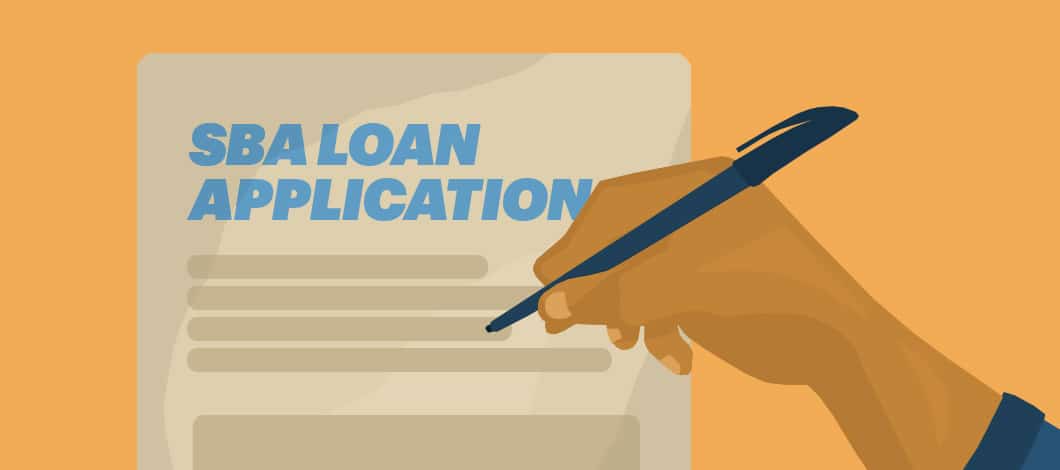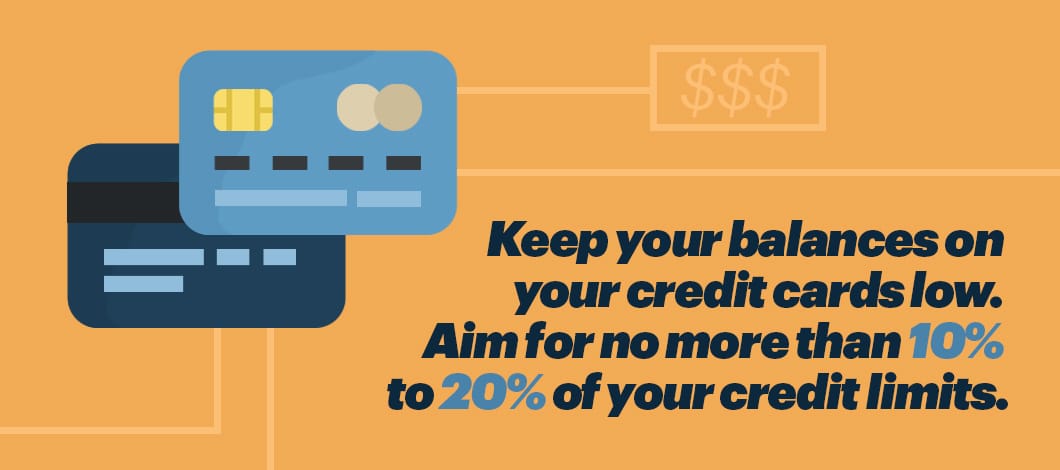Obtaining Small Business Administration (SBA) loans for bad credit is possible if you meet other qualifications. Here’s how to qualify and what your alternatives are.
We’ll look at how the SBA loan program works, what qualifications are required and how your credit score figures in. We also will discuss whether you can get an SBA loan with bad credit, how to go about it and how it affects your loan rates. Finally, we’ll cover how to improve your credit and what your financing alternatives are if you can’t qualify for an SBA loan.
How Do SBA Loans Work?
SBA loans are designed to make obtaining financing easier for small businesses which might not otherwise qualify for loans. To achieve this, the federal government works through the SBA to guarantee a portion of funds that private lenders such as banks extend to small businesses.
This reduces the risk to lenders in the event that borrowers default on their loans. In return, lenders agree to abide by SBA regulations that favor borrowers, such as abiding by caps on interest rates. This arrangement allows lenders to extend financing to small businesses which would otherwise represent unacceptably high credit risks.
While SBA loans reduce risk to lenders, financial providers still face some risk, so they need to evaluate a borrower’s creditworthiness to keep risk levels manageable. To keep risk within reason, they may apply a number of criteria to evaluate borrowers, including personal credit score or business credit score as well as other factors.
A high credit score can improve your chances of qualifying for a loan, but because lenders consider other variables, you may qualify even with a lower score in some situations.

How Do You Qualify for an SBA Loan?
To qualify for an SBA loan, you must meet both the SBA’s general criteria and the specific criteria set by the private lender working with the SBA on your behalf. The SBA sets certain general criteria which apply to all SBA loans regardless of type of loan or lender. You must:
- Be an officially registered, legally operating business that qualifies as a small business according to certain industry-specific size standards set by the SBA
- Have invested some equity in your own business
- Have your business located and operating within the U.S. or its territories
- Seek alternative financing resources, including personal assets, before seeking SBA assistance
- Not be delinquent on debt to the U.S. government
- Intend to use the funds for a sound business purpose
These eligibility criteria apply to all types of SBA loans. Certain additional criteria may apply to specific types of SBA loans. For example, loans sought through the SBA’s 7(a) loan program can be used for most general business purposes, while loans sought through its Certified Development Company (CDC)/504 program are restricted to a narrower range of uses geared toward business growth and job creation.
Besides meeting the SBA’s general qualifications, SBA loan applicants need to meet the specific qualifications set by individual lenders. Lenders set their own qualifying criteria, which generally include some type of collateral and a personal guarantee from the business owner. Lenders can set their own credit score requirements.
What Are SBA Loan Credit Score Requirements?
The SBA doesn’t publicly disclose any general minimum credit score requirements. However, to expedite 7(a) loan applications, it does help lenders screen applicants through a small business loan credit scoring system that uses the Small Business Scoring Service (SBSS), a credit scoring system offered by analytics company FICO. SBSS scores can range from 0 to 300, with scores in the mid-to-high 200s considered good. The SBA’s prescreening process expedites applications with an SBSS score of 140 and higher but flags those with lower scores. Should an applicant’s score fall below 140, the SBA requires lenders to follow different paperwork procedures to continue the loan process.
Regarding SBSS Scores
SBSS scores reflect a couple of main factors:
- Data about a company and its principals, including their personal financial data
- Data about a company’s finances, including financial statements, bank records and vendor payments
Because SBSS scores reflect personal financial data, many SBA lenders use minimum personal credit score requirements to qualify loan applicants. FICO’s personal credit scoring system ranges from 300 to 850, with scores of 580 to 669 considered fair and scores of 670 to 739 considered good. Because of this, your chances of getting approved for an SBA loan tend to increase as your score goes up from 670. However, some lenders may accept credit scores for business loans as low as 620 to 650 for SBA loans.
Lender minimum score requirements also vary with type of loan. For example, CDC/504 loans, which often are used for expensive long-term investments and thereby posing high risk to lenders, tend to have higher credit score requirements than 7(a) loans. SBA microloans, which have lower limits than other loan types and thereby pose lower risk to lenders, tend to have the lowest credit score requirements. Disaster loans, designed for businesses in financial distress stemming from situations such as severe weather or the COVID-19 pandemic, also have relaxed requirements.
Can You Get an SBA Loan with Bad Credit?
Yes, you can. One purpose of the SBA’s program is to make government small business loans for bad credit borrowers possible. To obtain government loans to start a business with bad credit, you’ll need to work with a lender whose credit criteria you meet for the type of loan you’re applying for, or else you’ll need to meet other qualifying criteria accepted by that lender.
Different lenders have different minimum score requirements and other criteria — and their criteria may differ for different types of loans, so you may be able to secure a loan by pursuing an alternate lender or loan type.
How Does Bad Credit Affect Your SBA Loan Rates?
A bad credit score makes lenders view you as a higher credit risk, so if they decide to approve you despite this increased risk, there will be some tradeoffs.
Usually, you will be offered a loan at a higher interest rate, with the higher payment compensating the lender for taking on the possibility of financial loss. You may have to provide more collateral than you otherwise would.
How to Get an SBA Loan With Bad Credit
If you’re seeking an SBA loan and you have bad credit, you can take a number of steps:
- First, check your SBSS score and personal credit score so that you know where you stand
- Next, look for a lender who provides SBA loans to borrowers within your score range
- Third, check whether the lender has different score requirements for different types of SBA loans
Following these steps can help you identify lenders who may be willing to work with you and loan products they may be willing to provide you. You can expedite these steps by working with a provider who uses digital automation to match you with lenders who fit your scoring criteria, which is what we do at Fast Capital 360.
If your credit doesn’t meet the criteria for any SBA lender, you might consider taking steps to raise your credit score before applying for an SBA loan. Alternately, you might pursue alternative forms of financing.

How Can You Improve Your Credit?
If you’re trying to improve your credit to qualify for an SBA loan, you should seek to optimize both your business and your personal credit. Because your SBSS score factors in your personal credit, start there.
You can improve your personal credit score by:
- Paying all bills on time
- Keeping your balances on your credit cards low, ideally aiming for no more than 10% to 20% of your credit limits
- Maintaining credit accounts for as long as possible rather than closing them
- Applying for a diverse mix of credit which includes installment loans
- Avoiding applying for credit too frequently
- Following cybersecurity best practices to protect yourself from identity theft
- Monitoring your credit report for negative items or signs of identity theft
Bolster Your Business Credit
In addition to taking such steps to improve your personal credit score, you can improve your business credit by:
- Doing smart financial planning to avoid cash-flow issues which can get you into debt or behind on payments
- Maintaining separate accounts for your business and personal finances, including separate bank accounts and credit cards
- Paying all bills to vendors and suppliers on time
- Keeping your business open for a number of years to establish your sustainability
- Applying for secured credit cards and business loans
Taking these steps will tend to increase your personal and business credit scores over time, making it easier for you to qualify for an SBA loan.
Alternatives to SBA Loans if You Don’t Qualify
If you don’t qualify for an SBA loan because of a low credit score, you may have other financing options. Some lenders may be willing to take on the risk of a low credit score if you’re:
- Willing to pay a higher interest rate
- Offer some collateral
- Make a personal guarantee
There also are financing options that place less emphasis on credit score to qualify and more emphasis on factors such as years in business, monthly revenue or collateral. For example, accounts receivable financing accepts your unpaid customer invoices as collateral. Merchant cash advances provide financing based on your future sales projections. Equipment financing uses the value of the equipment being leased or purchased as its own collateral. If your business model lends itself to these types of financing, they can be easier to qualify for than SBA loans or other standard loans.
Don’t Let Bad Credit Stop You From Finding Financing
Getting an SBA loan with bad credit is possible if you can find a lender willing to work with your credit score or if you meet other qualifying criteria.
You can obtain an SBA loan with bad credit by seeking a loan with lower credit requirements or by finding a flexible lender. Alternately, you can take steps to improve your credit before seeking an SBA loan or you can seek other financing resources.
Fast Capital 360 helps small businesses obtain access to SBA loans and other types of business financing by comparing lenders to find the right one for your needs. Take a few minutes to fill out our free, no-obligation prequalifying application and see your loan options.










